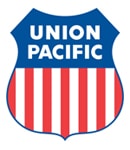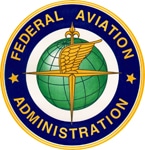There is a smartphone app for SMART TD members covered under the Railroad Employees National Health and Welfare Plan or the National Railway Carriers and SMART TD Health and Welfare Plan.
The mobile app is available for users of iPhone, Blackberry and Droid platforms, and the app will link to Aetna, Highmark BCBS, United Healthcare and Medco.
The app will allow you to:
* Obtain your member number and other pertinent information, and even allow you to print a temporary medical ID card.
* Obtain cost and quality data for certain providers and services (transparency tools can help you make more informed choices).
* Access claims information, popular tools and explanation of benefits.
* Find providers in your area, call them and obtain directions to the provider.
* Check your benefits and coverage information.
* Contact member services via phone or email.
Here is how to download the app:
* Log onto your secure member sites of Aetna (www.aetna.com); Highmark BCBS (www.highmarkbcbs.com); United Healthcare (www.myuhc.com); or Medco (www.medco.com).
You will need your secure user ID and password to proceed. If not registered on the site, you will have to do so when you log on.
Once logged on, you will find information on how to download the provider’s app to your smartphone.
Remember that federal regulations or employer policies may prohibit your using electronic devices, including smartphones, while on duty.
Author: paul
VSP Vision Care is working to fulfill the eye care needs of those directly affected by recent tornadoes throughout the Midwest.
* Any VSP member who has lost or broken their eyewear due to the tornadoes may call the VSP member services support line at (800) 877-7195 to have their VSP benefits reinstated regardless of eligibility.
* Individuals without VSP coverage can contact their local American Red Cross chapter and request a VSP eye care voucher.
UTU members hearing about a National Sleep Foundation study just released might be tempted to roll their eyes and ask – depending on craft – “Does ballast contain rip-rap? Do buses have headlights? Do airplanes have wings?”
Yet, sometimes, what is as obvious to transportation workers as closed eyelids on a fellow employee isn’t so obvious to those who shape and make laws and regulations at the state and federal levels. For all the efforts of the UTU’s National Legislative Office and state legislative directors, too many lawmakers still don’t properly understand the problem of transport worker fatigue — that, at worst, it kills and maims, and habitually distrupts family life.
So when a nationally recognized and well-respected research organization, such as the non-partisan, non-profit National Sleep Foundation speaks, many ears among opinion leaders and decision makers that previously weren’t listening elsewhere tune in.
This is what the National Sleep Foundation reported March 3:
* The people we trust to take us or our loved ones from place to place struggle with sleep.
* Pilots and train operators are most likely to report sleep-related job performance and safety problems.
* About 25 percent of railroad and airline workers in safety sensitive positions admit that sleepiness has affected their job performance at least once a week. This compares to about 17 percent of non-transportation workers.
* One-in-five pilots and almost one-in-five rails has made a serious error or had a close call due to sleepiness.
* Six percent of transportation workers — air, bus and rail — have been involved in car accidents due to sleepiness while commuting to or from work. This compares with just 1 percent of non-transportation workers.
* Among all workers, airline and rail workers in safety sensitive positions report the most workday sleep dissatisfaction.
* Almost two-thirds of rail workers in safety sensitive positions and one-half of airline workers in safety sensitive positions say they rarely or never get a good night’s sleep on work nights.
* If given one more hour off between work shifts, over one-half of pilots and rail workers in safety sensitive positions report that they would use the hour for sleep.
* Transportation workers have challenging schedules that compete with the natural need for sleep.
UTU National Legislative Director James Stem says that “while there has been some improvement in safety laws and regulations aimed at combating fatigue affecting transportation workers, those laws and regulations fall far short of what is needed.
“There remains a total lack of predictable work schedules for safety critical operating employees,” Stem says. “And there remains a misapplication of existing work-rest provisions that actually make fatigue-reducing applications worse – especially for regularly scheduled yard assignments.
“For commuter airline pilots, the problem of fatigue abatement is especially severe,” Stem says. “Commuter airline pilots and flight attendants in safety critical roles are not furnished lodging during break periods, requiring them to use public airport facilities, rather than hotel rooms, for rest periods.”
The UTU National Legislative Office and UTU state legislative directors will be using the results of this National Sleep Foundation study to educate lawmakers and regulators – a study that will beef-up existing education efforts.
Meanwhile, the National Sleep Foundation offers the following advice, which, in some cases, will help transportation workers obtain better rest:
* Use your bedroom only for sleep to strengthen the association between your bed and sleep. It may help to remove work materials, computers and televisions from your bedroom.
* Select a relaxing bedtime ritual, like a warm bath or listening to calming music.
* Create an environment conducive to sleep that is quiet, dark and cool, with a comfortable mattress and pillows.
* If you can’t sleep, go into another room and do something relaxing until you feel tired.
* Exercise regularly, but avoid vigorous workouts close to bedtime.
* If you are experiencing excessive sleepiness during work hours, contact your health care professional for a sleep apnea screening.
MINNEAPOLIS — The United Transportation Union and Progressive Rail have finalized a first-time collective bargaining agreement for Progressive Rail train and engine workers represented by the UTU.
Progressive Rail is a shortline with four locations around Minneapolis, interchanging with major railroads.
UTU International Vice President John Previsich, who assisted in the negotiations – aided by a mediator with the National Mediation Board – said the agreement “provides for significant wage increases with pay classifications equal for all, a grievance process and a seniority preference for assignments and bidding. Overall, this is an excellent first agreement that dramatically improves wages, rules and working conditions for Progressive Rail employees.”
Previsich said the agreement received “overwhelming approval by the covered employees, who are to be commended for their solidarity and perseverance through a long and drawn-out negotiating process.
Praised were the negotiating efforts of General Chairperson James Nelson (GO 261), “who was instrumental in obtaining the fair and equitable agreement that the Progressive Rail employees deserve,” Previsich said. “Also deserving of recognition are Minnesota State Legislative Director Phil Qualy and the officers and members of UTU Local 911, all of whom supported the negotiating effort during every step of the process.”

John J. Koraleski, executive vice president for marketing and sales will serve as acting president and CEO during Young’s absence.
Since joining UP in 1972, Koraleski has held a number of executive positions including controller of Union Pacific Corporation and executive vice president-finance and chief financial officer of Union Pacific Railroad. He also has held positions in the railroad’s information technologies, real-estate, and administrative departments.
Pursuant to a
long-established plan for such situations, John J. Koraleski, executive vice
president-Marketing and Sales, will serve as acting president and CEO during
Mr. Young’s absence.
Steven Rogel,
Union Pacific’s lead independent director, said: “The board has a great
deal of confidence in Jack, Rob Knight our CFO, Lance Fritz our head of
operations, and the entire management team. We are confident that our company
will continue to provide great service to our customers while meeting the
financial and safety objectives we have set for ourselves and our shareholders
expect.”
Since joining
the railroad in 1972, Koraleski has held a number of executive positions
including controller of Union Pacific Corporation and executive vice
president-finance and chief financial officer of Union Pacific Railroad. He
also has held positions in the railroad’s information technologies,
real-estate, and administrative departments. He earned both a bachelor’s and
master’s degree in business administration from the University of Nebraska at
Omaha.
“As Jim
undergoes his treatment, he has the prayers and support of all 45,000 employees
of the UP Team. Our commitment to him, our customers, and our shareholders is
continued strong performance of our Company and another record-setting year for
Union Pacific,” Koraleski said.
The use of a
medical leave of absence by the chief executive officer is consistent with
company policy established several years ago by the board of directors to
ensure management continuity in the case of a change in the status of the CEO.
The policy and the assignment of an acting CEO are reviewed regularly by the
board’s corporate governance and nominating committee.
WASHINGTON – In a Feb. 29, 2012, Federal Register notice, the Federal Railroad Administration provides its interpretation of hours-of-service laws “arising out of some of the complex and important amendments enacted in 2008 to the Federal railroad safety laws that govern such matters as how long a railroad may require or allow an employee in a certain category to remain on duty and how long the railroad must give the employee off duty before the employee may go on duty again.”
The FRA said, “In issuing this interpretation, FRA has considered public comments that it received on its June 2009 document that contained the agency’s interim interpretations.”
To read the 24-page Federal Register notice of Feb. 29, 2012, click on the following link:
WASHINGTON – Whistleblower protection administered by the Department of Labor’s Occupational Safety and Health Administration (OSHA) has been elevated in agency priority, with the program now administered directly by OSHA’s assistant secretary of labor.
The Department of Labor said the administrative change was an effort “to strengthen employees’ voices in the workplace.”
“The ability of workers to speak out and exercise their rights without fear of retaliation provides the backbone for some of American workers’ most essential legal protections,” said OSHA’s Assistant Secretary of Labor Dr. David Michaels.
OSHA also announced that it has launched pilot projects in 10 field regions that could further strengthen the whistleblower program.
OSHA enforces the whistleblower provisions of the Occupational Safety and Health Act of 1970, and 20 other statutes — including the Federal Rail Safety Act of 2007 — protecting employees who report alleged violations of various workplace safety regulations.
Over the past several years, OSHA has cited numerous railroads for violations of whistleblower protection, imposing hefty fines and reparations in favor of injured workers who suffered harassment or intimidation for reporting workplace injuries.
An employee may file a whistleblower complaint directly with OSHA, or may contact a UTU designated legal counsel, general chairperson or state legislative director for assistance.
A listing of UTU designated legal counsel is available at https://www.smart-union.org/td/designated-legal-counsel// or may be obtained from local or general committee officers or state legislative directors.
To view a more detailed OSHA fact sheet, click on the following link:
www.osha.gov/Publications/OSHA-factsheet-whistleblower-railroad.pdf
A New Jersey Transit conductor has been arrested and charged with official misconduct, theft and conspiracy, according to news reports, following a seven-month investigation into missing ticket money.
The alleged crime is said to have occurred on NJT’s North Jersey Coast Line between New York City and Bay Head, N.J.
Conductor Robert Broschart was arrested along with a non-NJT employee – Phillip Swanger – on charges brought by the Monmouth County prosecutor and NJT. They are charged with defrauding NJT of thousands of dollars in ticket money over a one-year period. Broschart faces up to 20 years in prison, according to news reports.

Over the past year, four crew members died and another was seriously injured in two separate accidents while riding in shuttle vans.
Shuttle-van drivers are almost always non-union and required to work long hours under horrendous working conditions. Understandably, driver turnover is substantial, which has frustrated previous efforts to organize these drivers.
Our National Legislative Office and UTU state legislative directors have long fought for better shuttle-van safety, seeking regulations requiring improved training, hours-of-service limitations and better pay and benefits for the drivers.
In several states, the UTU has been successful in gaining passage of legislation regulating shuttle vans, to include minimum driver-hiring qualifications, maximum hours-of-service limitations, driver drug-testing requirements, fully operational seat belts, annual state DOT inspections of the vans, and state DOT certification of vehicle maintenance inspections and repair records.
Shock resulted last month when Rep. Larry Bucshon (R-Ind.) was successful in adding an amendment to a highway-funding bill in the House of Representatives that would strip shuttle-van drivers, operating in interstate commerce, of minimum wage and overtime protection – a significant step backward in the push for improved shuttle-van safety.
Equally shocking was a news report that the president of one shuttle-van service – Professional Transportation, Inc. – had donated, along with his wife, more than $55,000 in political contributions last year to Republican lawmakers, including Bucshon.
The news report observed that many van-shuttle drivers are paid minimum wage – which no longer would be their wage floor — and sometimes spend 60 hours a week behind the wheel. Other shuttle-van firms that would benefit from this Bucshon amendment include RailCrew Xpress, Renzenberger and Coach America.
Rep. George Miller (D-Calif.), who is working to kill the Bucshon amendment, said, “It’s outrageous that House Republicans are trying to take away overtime protections for a class of workers at the behest of a special interest.”
The UTU National Legislative Office is working with other members of the House, who similarly recognize the public safety implications of the Bucshon amendment, to ensure it does not survive.

The agency, in a notice of proposed rulemaking, is responding to a mandate in the Airline Safety and Federal Aviation Administration Extension Act of 2010.
The FAA, subject to public comment and publication of a final rule, proposes that first officers – also known as copilots – hold an Airline Transport Pilot (ATP) certificate, requiring 1,500 hours of pilot flight time. Currently, first officers are required to have only a commercial pilot certificate, which requires 250 hours of flight time.
The proposed rule also would require first officers to have an aircraft-type rating, which involves additional training and testing specific to the airplanes they fly.
Other highlights of the proposed rule include:
* A requirement that pilots have a minimum of 1,000 flight hours as a pilot in air carrier operations that require an ATP prior to serving as a captain for a U.S. airline.
* Enhanced training requirements for an ATP certificate, including 50 hours of multi-engine flight experience and completion of a new FAA-approved training program.
* An allowance for pilots with fewer than 1,500 hours of flight time, but who have an aviation degree or military pilot experience, to obtain a “restricted privileges” ATP certificate. These pilots could serve only as a first officer, not as a captain. Former military pilots with 750 hours of flight time could apply for an ATP certificate with restricted privileges. Graduates of a four-year baccalaureate aviation degree could to obtain an ATP with 1,000 hours of flight time only if they also obtained a commercial pilot certificate and instrument rating from a pilot school affiliated with the university or college.
To read the notice of proposed rulemaking, click on the following link:
http://archives.gov/federal-register/public-inspection/
The public may comment on the proposal for 60 days after publication Feb. 29 in the Federal Register.
